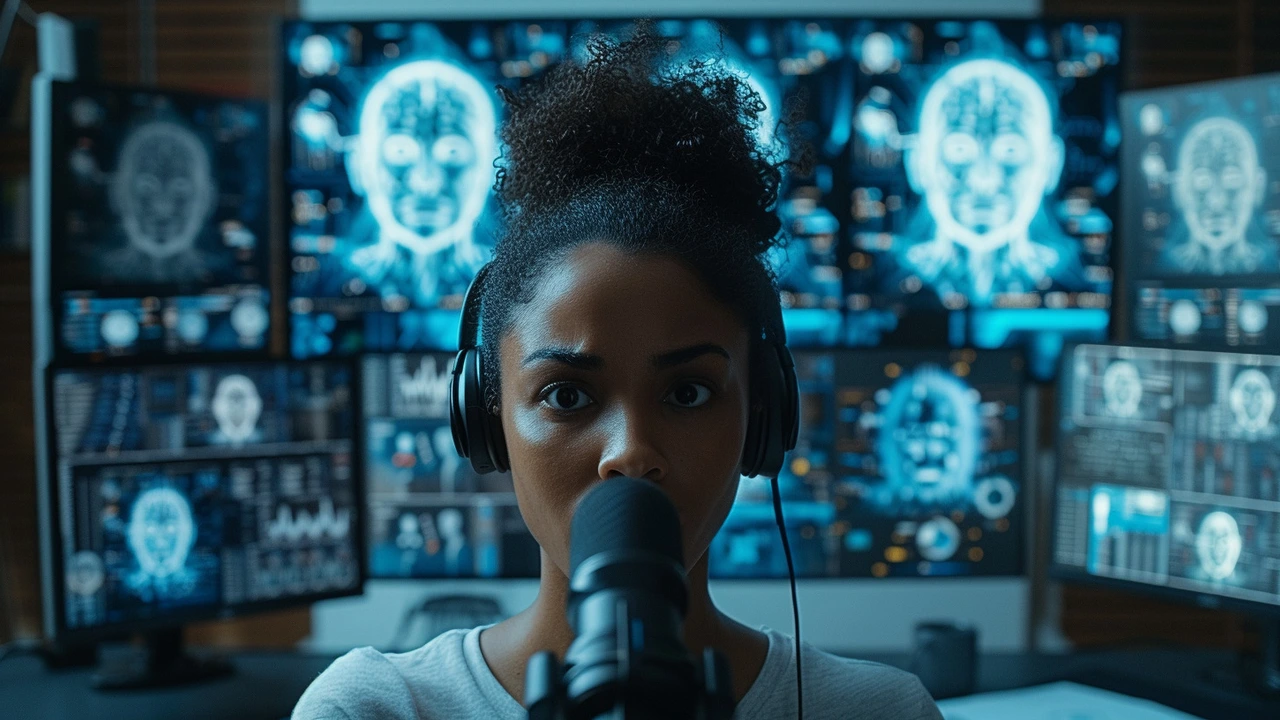Unveiling the Enigma: What is Artificial General Intelligence?
If you've ever watched the 'Terminator' or 'Ex Machina', you've come across a word that's as elusive as it is fascinating: Artificial General Intelligence (AGI). Picture Arnold Schwarzenegger as the T-800, an advanced AI entity that can reason, learn, adapt, and perform tasks better than a human, in any intellectual field. That's AGI for you! As someone who spends most of his waking hours thinking, talking, and writing about AI, one question has often intrigued me: Are we on the brink of creating machines that could outsmart their creators?
Simply put, AGI, often regarded as "strong AI," holds the potential to understand, interpret, and exhibit intelligence equal to that of a human being. Not confined to a specific domain, it can accomplish any intellectual task that a human mind can. Interesting, isn't it? If you're wondering whether Siri, Alexa, or Google Assistant falls into this category, they’re not quite there yet. They may have mastered the art of stirring up hilariously sarcastic responses, but AGI? We're talking a whole different league.
AGI Versus Narrow AI: Unraveling the Contrasts
Before diving deep into the ocean of AGI, allow me to demystify the basic difference between AGI and Narrow AI, the latter being a common, albeit limited, manifestation of AI. Picture this: you’re playing chess with a bot, and it’s plotting the best moves, anticipating yours, essentially outsmarting you. That’s Narrow AI, the type that out-specializes humans at specifically defined tasks.
Yet, the same bot would miserably fail if you asked it to write a poem or cook a meal for you. Why? Because it doesn't possess general intelligence- the ability to understand, learn, and apply knowledge across a wide range of tasks. This is the fundamental difference between Narrow AI and AGI. AGI, as ambitious as it seems, aspires to replicate human cognition, a feat Narrow AI falls short of.
Oft-asked Dilemma: When Will We Achieve AGI?
Now let's address the elephant in the room: when will we reach AGI? Well, if I had a nickel for every speculation on this, I'd probably have enough to build a Terminator myself. By all means, AGI is a white whale within the AI community. It’s ambitious. Ever elusive. Yet, unequivocally fascinating. As for a timeline? Predictions range from decades to "not in our lifetime" to downright "never". Phew! Looks like the timeline for AGI is as confusing as my dog's interpretation of the command 'Stay' while a steak is around.
I remember attending a splendid lecture by the eminent AI researcher Andrew Ng who brightly observed, "Fretting over AGI is like worrying about overpopulation on Mars when we have yet to set foot on it." Ring any bells? AGI is indeed a brilliant concept, but for now, it's still on the horizon, lingering on the borderline between science fiction and a futuristic reality.
The Paradigm Shifters: Success Stories in AGI
When it comes to AGI breakthroughs, there have been a few interesting stories worth narrating. Back at a conference in 2015, I chanced upon OpenAI, an AI research lab that made headlines for its startling advancements in AGI. OpenAI's GPT-3, an AI text generator, has been a game-changer in the industry, capable of composing splendid poetic verses, solving complex summations, and even creating Python code! If that's not all, it even asked an existential question once: "Does being alive feel like anything?" Wow, pretty heavy stuff from a machine!
But it's worth noting that even GPT-3 isn't considered AGI. Despite blurring the line between AI and human-like intelligence, it is not without limitations that hinder its entry into the esteemed AGI club. This just underscores how ambitious the goal of AGI truly is.
Pondering AGI’s Impact: AI-Driven Utopia or a Dystopian Nightmare?
We've all seen those sci-fi movies where AGI either ushers in a golden age of prosperity or results in a robo-apocalypse. I find myself oscillating between being blown away by the potential of AGI and shuddering at its plausible implications. In a world teetering on the edge of AGI-autonomous cars, medical diagnosis, financial systems, defense, you name it, the implications of AGI could be gigantic.
Yet, it's just as crucial to discuss the ethical and societal aspects. Can AGI systems make fair decisions? How do we deal with AGI-driven job displacement? As they say, with great power comes great responsibility, a principle that must seep deeply into the foundations of AGI.
Wrapping It Up: The Future of AGI
In the grand scheme of technology, AGI indeed has the potential to be a monumental breakthrough. The prospect of creating AGI is like stepping into uncharted waters, with a dash of excitement and plenty of mystery. There's no definitive road map to AGI, no clearly defined trajectory. Predicting its advent is as feasible as predicting next week's lottery numbers. But hey, who doesn't like a good mystery, right?
Yes, AGI poses challenges, intriguing ones at that. And sure, it’s still more sci-fi than reality. But as a self-confessed tech-optimist, I firmly believe that our remarkable strides in AI herald a future where AGI could become less a figment of science fiction and more a reality that’s reshaping our world. And when that happens, you can be sure I’ll be right here, penning down my thoughts, sharing stories, and unraveling the many facades of the fascinating world of AGI.

